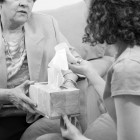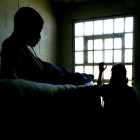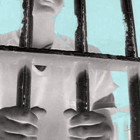
Analysis: Holes in the Evidence for Evidence-Based
|
Why the evidence behind even the most highly-regarded treatment models for court-involved youth isn't nearly as strong as advertised.
Juvenile Justice Information Exchange (https://jjie.org/tag/evidence-based-latest/)

Why the evidence behind even the most highly-regarded treatment models for court-involved youth isn't nearly as strong as advertised.

It seemed a throwback to the days of the country doctor: Go to the patients instead of having them come to you. As a young intern in the pediatrics department at the University of Virginia’s medical school in the mid-1970s, Scott Henggeler got that advice from his supervisor, a social worker on staff. He heeded it, taking the department’s van out for house calls into the natural beauty of the Shenandoah Valley in the Charlottesville area and soon had an epiphany about the folly of trying to treat some of the most troubled youngsters in an office setting. “I visited probably about six, seven homes, and in each case, all it really took was to just set foot inside the door and you realized how goofy your academic treatment plan was,” Henggeler told JJIE. “Doing the home-based stuff just removed the barriers, really removed most of the barriers and helped you better engage with the families, but also very importantly, you got much more accurate assessment data.

U.S. Attorney General Eric H. Holder Jr. condemned “excessive” use of solitary confinement of children with mental illness in juvenile facilities.

It's time to ask whether our costly juvenile justice system is accomplishing what we want it to accomplish.

Jafar Abbas knows more than he’d like about recidivism – and its cruel costs. It robbed him of his youth, many prime years, too; more than a quarter century.

The Vera Institute of Justice has announced that it will conduct a two-year study to examine the possible impact of increased family visits on juvenile residents in Indiana.

“The general purpose of this grant is, really at a high level, to engage potential government partners at the county-level, and engage and educate them about the Pay for Success opportunities in these two areas."

Exploring why a shocking number of pacific islander youth end up in juvenile jail in Australia each year.

The Illinois DJJ and the ACLU have four months to review expert reports on the IDJJ’s psychological and mental health, educational, and safety and welfare services.

The United States imprisons more people than any other country — and a staggering number are juveniles. Sadly, our school system is contributing to the problem. Too many children are denied their right to a quality education and instead set on a path toward failure and incarceration.